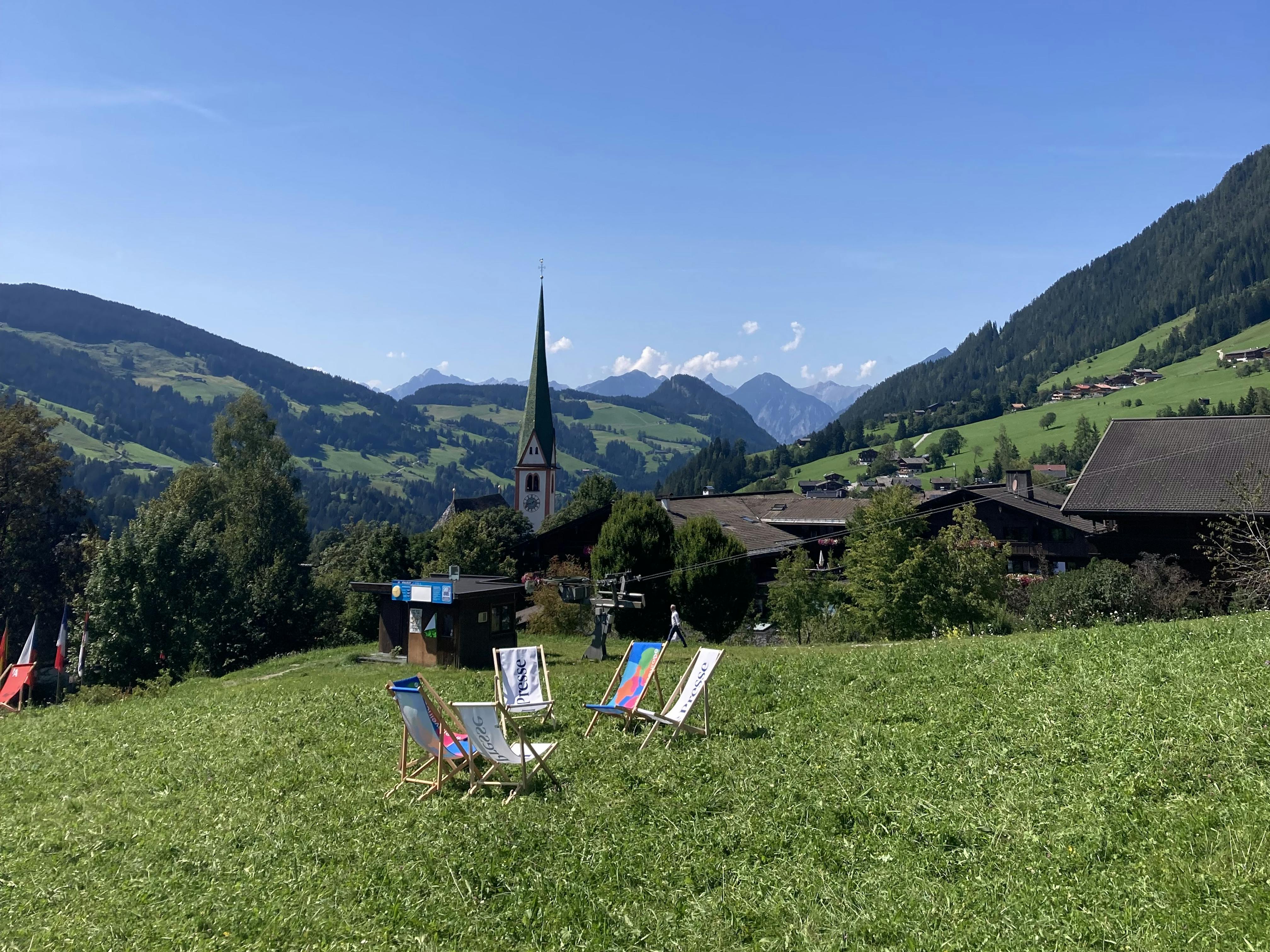As anti-democratic forces emerge and gain strength all across the globe, the question arises of what this means for the future of democracy. Is the world experiencing a period of global democratic backsliding? If so, is this merely a phase in a cyclical pattern of democratic rise and decline, or the beginning of the end of democracy as a political system?
Discussions at the European Forum Alpbach highlighted both threats and opportunities in light of emerging technologies, novel modes of governance and new citizen movements. Positions ranged from rather pessimistic outlooks on the resilience of the rule of law, to hopeful perspectives on the potential of citizen initiatives to reinvigorate democratic participation.
Independently of the future outlook on democracy, a recurring theme was trust - and the lack thereof. The erosion of citizens’ trust in governments, political parties and generally democratic institutions is a driver of democratic backsliding and the rise of far-right populism. This erosion is predicted to continue as a result of an increasing spread of disinformation, accelerated by the development of artificial intelligence. These discussions on trust echo findings of a recent report on the global state of democracy, which highlights the importance of citizens’ trust in institutions for democratic stability. In the “super election year” 2024, this issue has found particular resonance, as trust can influence everything from voter turnout to the acceptance and legitimacy of election results.
From a “McMafia” to a cooperative approach: Three scenarios on the future of democracy
Faced with the question “What will democracy look like in 2100?”, speakers at the European Forum Alpbach presented three differing future scenarios.
The pessimist scenario told a story of unregulated neoliberal capitalism further accentuating socio-economic inequalities. Simultaneously, the new oligarchs of Silicon Valley accumulate wealth and political power, build alliances with autocratic forces, and use their platforms to accelerate the spread of disinformation. Both growing inequality and the spread of disinformation drive the rise of autocratic governments, cementing the demise of democracy by the end of the century.
This “McMafia” scenario highlights first the threat that socio-economic inequality poses to democratic systems. It points to how citizens’ trust in democratic systems depends on the ability of governments to provide guarantees of fundamental freedoms and civil liberties as well as socio-economic security. This notion underlies what was a recurring argument across sessions at the European Forum Alpbach, namely that democratic forces should counter far-right and populist narratives with tangible solutions to citizens’ – notably economic – concerns. Addressing such concerns would reduce the appeal of far-right narratives and the political polarisation they breed.
This pessimist scenario also describes how the control over information, concentrated in the hands of a wealthy few, endangers democracies. This mirrors arguments raised in other discussions on the role of disinformation and harmful uses of artificial intelligence (AI) in undermining trust in democratic institutions. Without explicitly discussing trust, the pessimist scenario therefore attaches central importance to it: The impacts of both socio-economic inequality and disinformation on the viability of democracy work through their effect on citizens’ trust in democratic institutions and actors.
The optimist scenario took a different angle in conceptualising both democracy and trust. Looking less at who holds political power and what they do with it, it focuses instead on how democratic societies can be built from “below”. This scenario argued that interpersonal trust and people’s sense of belonging to a community are the foundations of democracy. The scenario’s case for optimism is built on the assumption that humans by nature look for such connections to a community and thereby are made to build and maintain democratic societies.
The notion of mobilising cooperative, community-oriented elements of human nature to strengthen democracy was addressed in another session in Alpbach on building democratic resilience. The importance of citizens’ sense of belonging to a community, was an even more prominent concept, raised in various sessions. To counter far-right narratives, for instance, participants argued that besides socio-economic realities, democratic parties must also address societal marginalisation, a key driver of radicalisation and political violence. In line with literature on democratic resilience, discussions on democratic backsliding identified a sense of community as a crucial element to ensure people’s sense of ownership over their political system and mobilise them to actively defend democracy against autocratic tendencies. Compared to many of the current discussions on the role of trust in democracy as outlined above, a distinctive element of this understanding is the importance accorded to citizens’ trust not just in institutions, but in one another.
Finally, between the demise of democracy at the hands of the wealthy and its trust-based grassroots rebuilding, the third scenario was more “middle way”. It foresees the world “muddling through middletopia”, with a persistent coexistence between democracies and autocracies. The scenario describes an inevitable, cyclical rise and decline of democracies as societies respond in different ways to emerging challenges. A specific emphasis is placed in this scenario on people’s feelings of loneliness and alienation, which other speakers in Alpbach had equally identified as key drivers of societal polarisation.
The “middle way” scenario, however, also proposes means by which societies striving for more democracy can rebuild trust. Echoing the optimist scenario, it argues that human nature makes people yearn for personal connections and a sense of belonging to a community. To build this sense of belonging and counter distrust and polarisation, the scenario emphasises the need to address the right topics in political and societal debates. Citizens should be discussing the human dimension of their coexistence and the values that bring them together, turning away from debates on material factors. Like the optimist scenario, this argument highlights the importance of how citizens perceive and shape their own role in democratic systems as well as how they relate to one another.
Conclusion: Restoring both institutional and interpersonal trust in democracy
Despite varying predictions for the future, the proposed scenarios share the assumption that trust is the foundation on which democracies are built. The erosion of this trust therefore poses a significant threat to democratic systems. An important distinction to make is that trust is not only trust in the institutions but also between citizens. For those seeking to safeguard democracy and protect it from autocratic tendencies, the question therefore is how decision-makers can strengthen both institutional and interpersonal trust. In particular, promoting spaces where civil society actors and citizens can come together initiate dialogue, and begin building trust-based relations seems essential.
This blog post is part of a series of blog posts in collaboration with the European Forum Alpbach 2024






